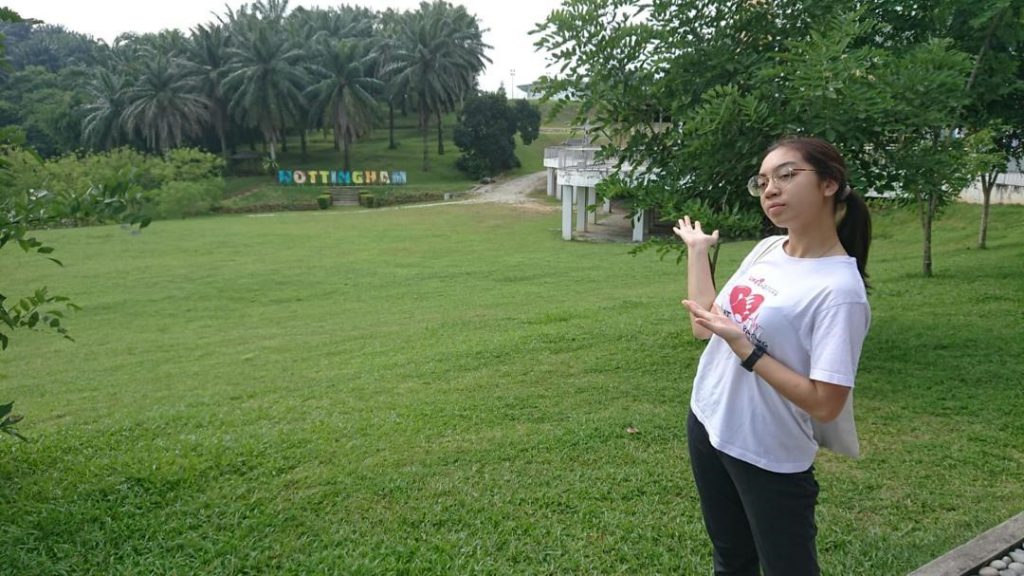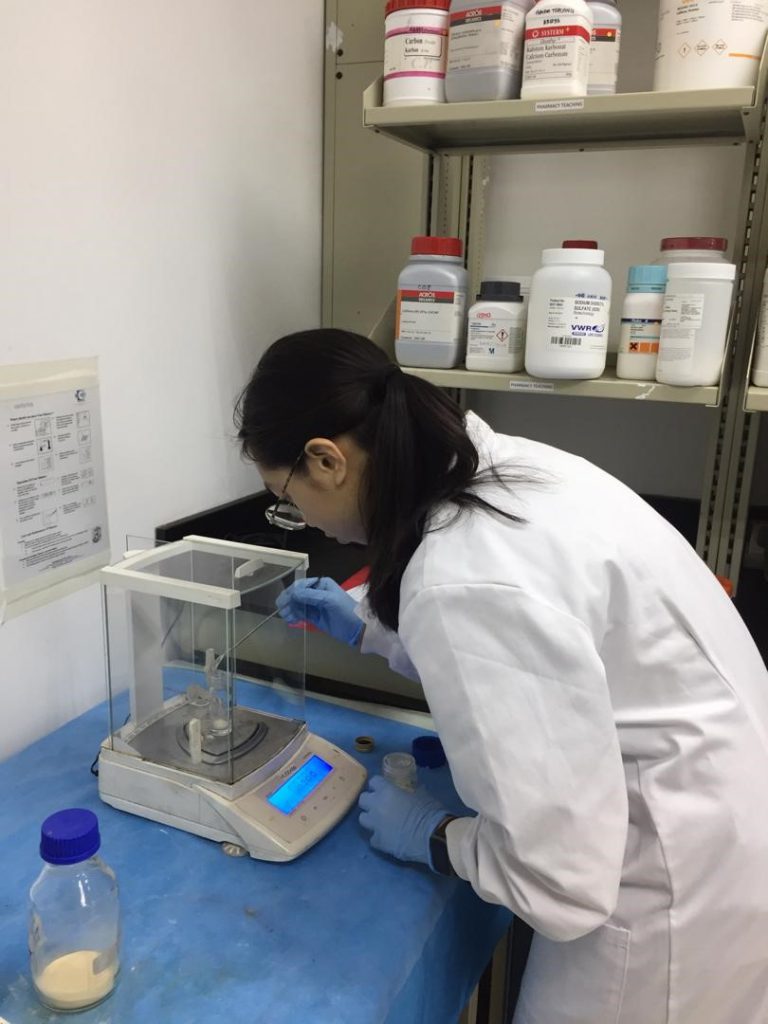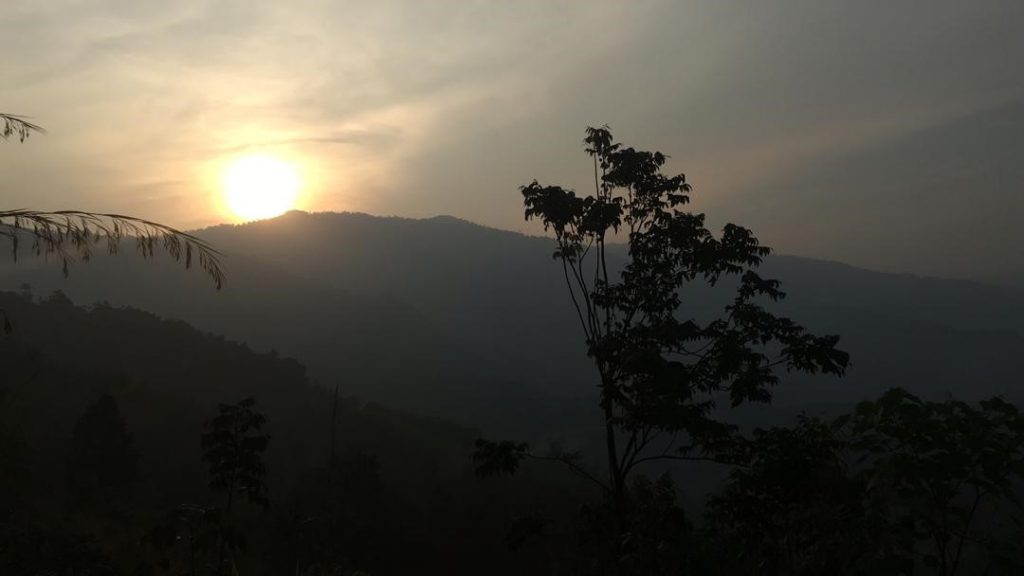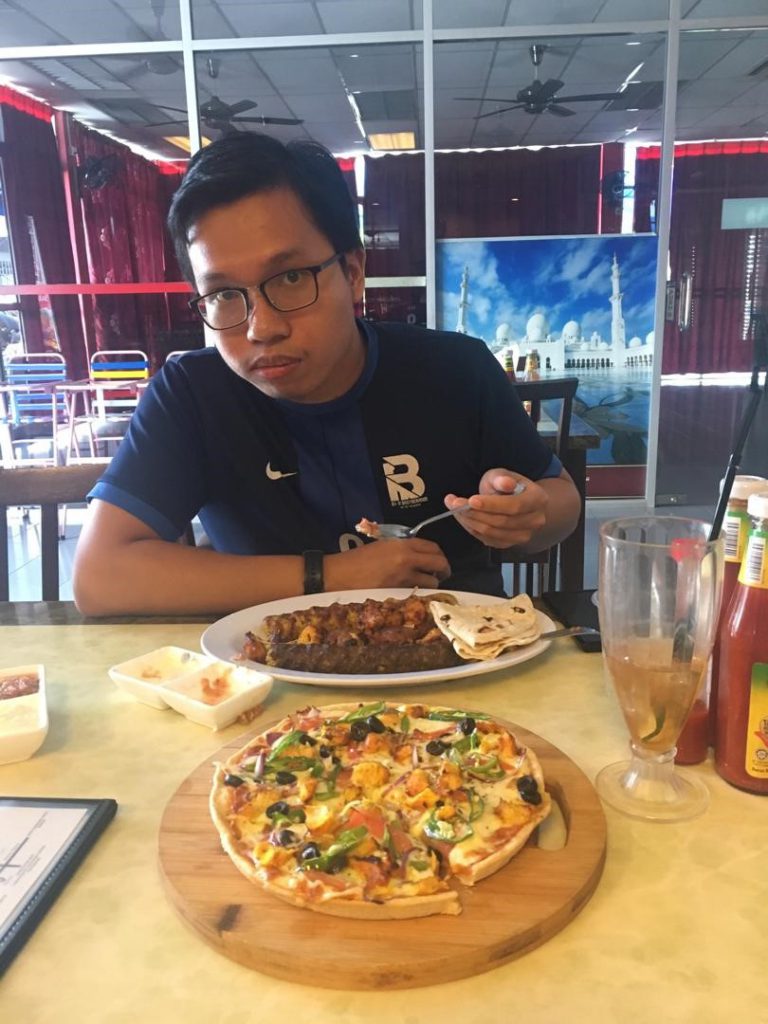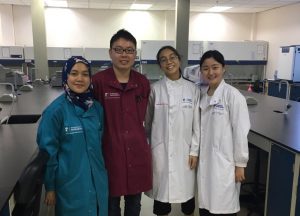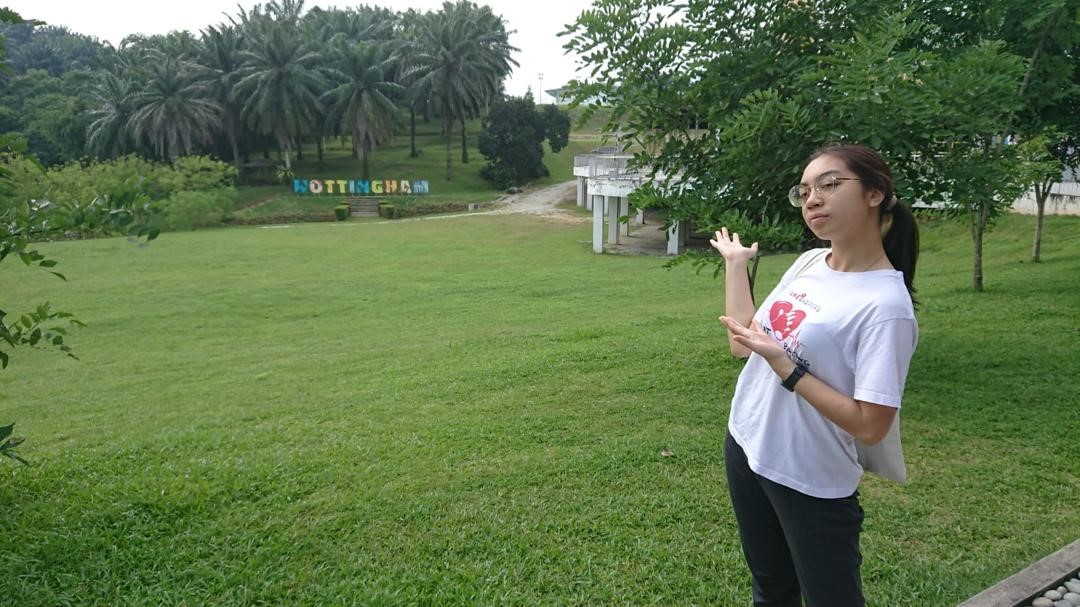
September 18, 2019, by Lee Mei Kee
10 Things I Learnt During My Lab Internship at UNM
Coming fresh out of second year Biomed and straight into wet lab work, I was faced with a whole new learning curve. Unfamiliar places, an independent project, I found it all extremely fun albeit a challenge. Here’s what I learnt doing molecular cloning work as an intern in Notts, coming from Newcastle JB.
1. Water is amazing. So is ice.
All living organisms are based in water. Your body is around 60% water. Imagine all the enzymes, DNA, sugars and protein, all floating about inside you, in water. This is why we can always adjust the volume of sterile water when making our master mixes or buffers. Water is our base and it’s highly flexible.
Ice is also something we can trust. If you want to prevent reactions from occurring, it’s always a good idea to keep an ice bucket nearby. Remember: less heat, less energy, less reactions!
2. Preparation is 50%.
Knowing exactly what you’re going to do and what you need makes for a successful experiment. This means going through the protocol the night before or early in the morning, picturing what you’re going to do step by step.
Consider what pipettes you need, whether your tips or tubes are running out, what ingredients to add to your mastermix etc.
It’s like cooking! I cannot stress how important preparation is and how disastrous it can be when you become disorganised. I’ve had to run back, to and from the same lab, at least 3 times because I forgot 3 different things. You don’t think properly when you’re in a rush.
3. Patience is key.
Transformation, restriction digestion, subculturing… Allowing the enzymes/ microorganisms to just do their thing requires patience. Not only the reactions themselves but sometimes you just don’t have anything to do. It’s always a good idea to occupy your time to do something productive like plan the next step or do extra reading for further discussion. Who knows, you might find out something interesting!
4. Good time management gives you time to eat.
Always give yourself plenty of time to do experiments. When I started out, I would overestimate my ability, doing experiment after experiment and then finding myself hypoglycaemic. My senior would go down just to get me a cake and joke ‘go eat, nanti jadi pengsan’.
If there are many experiments, jot down a schedule. Always underestimate your ability if you’re just starting out, like how driving on trafficky Malaysian roads takes much longer than what you initially estimate! You should always have a full stomach and a working brain when in the lab!
5. Don’t be afraid to ask questions.
This doesn’t just apply to questions regarding how to do the protocol. You should also question the protocol. Any misspellings, overlooked sentences or false facts brought to the attention of your supervisor could make a breakthrough! For example, I realised that a plasmid was written as the wrong size for a calculation step in my protocol. With a source, I asked a senior. Turns out I was correct! Questioning things could also get you to learn more about why scientists do certain things as standard procedure.
6. Keeping note of the small things helps.
Log books are very handy. Recipes, calculations, concentrations, everything can be kept in one place! Lab work can get overwhelming with information, so that’s why jotting down steps can help you enhance your recall when you need to do the procedure again.
7. Embrace the failures and the mistakes.
After powering through experiment after experiment, it was disappointing for me to find failed results. Then having to redo it all over again. This is completely normal and all researchers have to go through it. What matters is that the problem gets investigated and an experiment is devised to confirm our suspicions.
One time, faint bands (my PCR products) were found when I ran agarose gel electrophoresis. Seeing as the primer dimer bands were very bright, my supervisor advised me to repeat the PCR, increasing the cDNA added as it probably had a low concentration. She was right! The PCR product band increased in brightness, and the primer dimer band decreased.
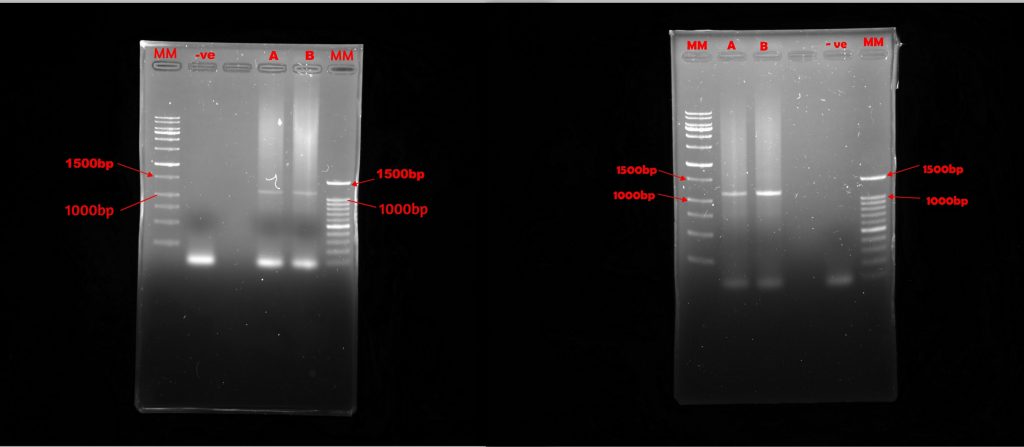
Before: PCR Products at 1.1kbp are faint, primer dimer bands below are bright (LEFT); After: PCR Products are bright, primer dimer bands are dim (RIGHT).
8. Try new experiences, find new surprises.
I came from a tiny university. Imagine taking out the blue building from UNMC and putting it in JB. That’s Newcastle JB. So seeing huge buildings around a large circle, and going jogging around the lake, has been a blast. Food is great here too! I think the food choices here are endless. Not only on campus, but Broga Hill is definitely worth exploring.
Gazing over the town atop Bukit Broga; the eerie fog of the clouds, the black mountains looming though distant, and the teeny buildings below, was an achievement to me. Just as rewarding as the work I’ve done here. So I’d recommend anyone to take a day off for a hike up there. My favourite place to eat in Broga is Al-Reef Restaurant, it’s an amazing Arab place.
9. Better safe than sorry.
It’s better to be careful and take your time doing lab work rather than being quick and rushing everything. Careful and thorough cleaning and handling of substances will always get you a long way. Knowing that you’ve done a good job gives you way less stress and regret!
10. Learn from those who have more experience than you.
Be it my supervisor, technician, seniors; everyone has much more experience than me in the lab! If you get into a situation like this, it’s great to learn from what they do. This includes how they do things, how they prepare for lab, how their brains work! You can take inspiration from that and adapt it to your working ability. Any advice they give you is also very valuable for future lab work.
Acknowledgements
I give thanks to Dr. Wan Yong for being a fantastic supervisor. Without her, my project wouldn’t have progressed as much as it did! I give thanks to Miss Asma for all the technical advice. Thanks to Victor (Chong Zhi Xiong) for helping and teaching me through this whole project, thick and thin with such diligence! Thanks to Raymond (Leong Chia Choong) for helping me with RNA extraction and teaching me lots of useful things. Finally, thanks to Jenna for teaching me basic microbial work. I will definitely miss Nottingham, especially the lab!
Article by: Ameera Sabrina Binti Amran (Y2 BMS student from Newcastle University Medicine Malaysia)
-
Post a comment

